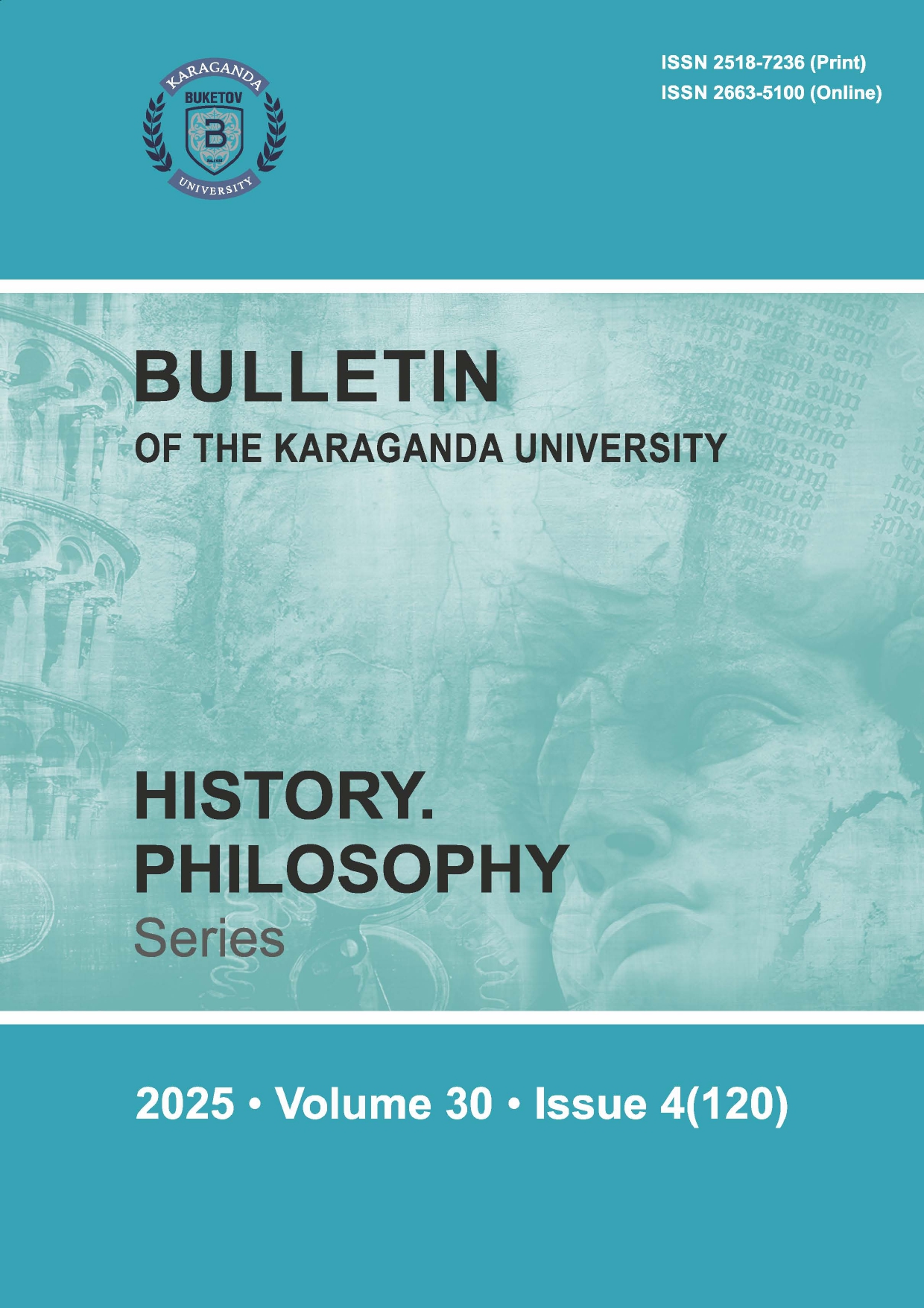Announcement!
Dear readers and authors,
We are pleased to announce that starting with issue No. 1 (121) of 2026, the journal «Bulletin of the Karaganda University. History. Philosophy series» will be divided into two separate scientific journals.
The «History» series will be published under the title «Eurasian Journal of History» and the «Philosophy» series under the title «Logos: Eurasian Journal of Philosophy».
At the same time, we would like to inform you that all articles and materials previously published under the journal’s former title will be preserved and will be available in the journal’s archive. The archive of articles and materials from the journal «Bulletin of the Karaganda University. History. Philosophy series» will still be available on our website, and you will still be able to access it in a format that is convenient for you.
We appreciate your support and look forward to further productive cooperation!
Read more about Announcement!




